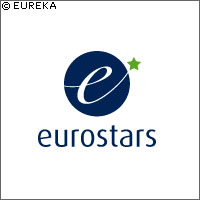EU and EUREKA launch Eurostars programme for research-performing SMEs
Europe has taken 'another step in the realisation of the European Research Area, this time to the benefit of SMEs [small and medium sized enterprises]', according to EU Science and Research Commissioner Janez Potocnik, who helped to launch EUREKA's Eurostars programme on 2 October. The programme will provide financial support, from both EU and the EUREKA member country funds, to Europe's young and innovative companies, described by Mr Potocnik as the 'lifeblood' of Europe's economy. The programme is aimed specifically at a niche market of research and innovation-performing businesses that fulfil the EU-adopted definition of an SME, are based in a country participating in Eurostars, and that invest 10% or more of their annual turnover in research. 'SMEs are the driving motor of the European economy because they are flexible. They can adapt quickly to the needs of the market,' said the Commissioner. Importantly, the initiative has been welcomed by the SME community. Speaking at the launch, chairman of the European Federation of high-tech SMEs, Emmanuel Leprince, spoke of his 'high expectations' for the programme. He also talked of a 'glass ceiling' that is preventing most SMEs from reaching their full potential. Eurostars will help these young companies, so often considered by investors as the 'dangerous option', to get a foot on the ladder. The attraction of Eurostars is that it is designed specifically for SMEs involved in research, said Mr Leprince. 'The Commission tackles red tape, regulations, standards etc. These are all important issues, but they are not the specific problems of SMEs,' he explained. Some SME representatives would however like to see the criteria for participation widened so that more companies can benefit. Ullrich Schröder, research and development (R&D) advisor at the European craft and SME employers' organisation (UEAPME), said that the number of SMEs investing 10% or over in research is quite small, and that the barrier should be lowered to 5% in line with the definition of a high-tech SME used by the Organisation for Economic Cooperation and Development (OECD). Representing the Slovenian Presidency of EUREKA, Ales Mihelic, General Director of the Slovenian Ministry of Higher Education, Science and Technology, conceded that 10% is quite high, but pointed out that EUREKA has made it easier for more companies to participate by saying that they can also invest 10% of their full-time equivalent (FTE) in R&D. Mr Potocnik highlighted how Eurostars will complement existing EU initiatives intended to support SMEs conducting research. Under the Sixth Framework Programme (FP6) the Commission set the target of having SMEs make up 15% of project participants. This target proved difficult to meet in some areas however. Under FP7, the Commission has simplified administrative procedures, increased the funding of SME projects from 50% to 75% of the project's cost, and introduced the guarantee fund. All of these measures are intended to make it easier for SMEs to participate in FP7. But as the Commissioner pointed out, 'In FP7 Cooperation projects, SMEs aren't usually leading the projects.' Eurostars will enable SMEs to do just that, benefitting from €100 million in Commission funding and €300 million from 22 EU Member States and five countries associated to FP7. This capital is expected to attract a further €400 million in private investment. 'Eurostars fills a gap that was existing, using tools that were on our market but not used in this combination,' said Mr Potocnik. The Commission's participation comes under Article 169 of the EU Treaty, which allows for the participation of the Community in research programmes run jointly by a number of EU Member States. The Commissioner referred to these new and closer links between EUREKA and the framework programmes as a marriage. Alluding to questions over the Commission's commitment to funding Eurostars beyond its initial six-year timeframe, he said: 'As we all know, in a marriage, it is not enough to say 'yes' only at the beginning. You have to show that you mean it constantly.' The imagery continued as the Commissioner concluded his speech, claiming that he was happy to be the best man at this marriage, and wishing Eurostars a long and happy life, with lots of healthy SMEs.



